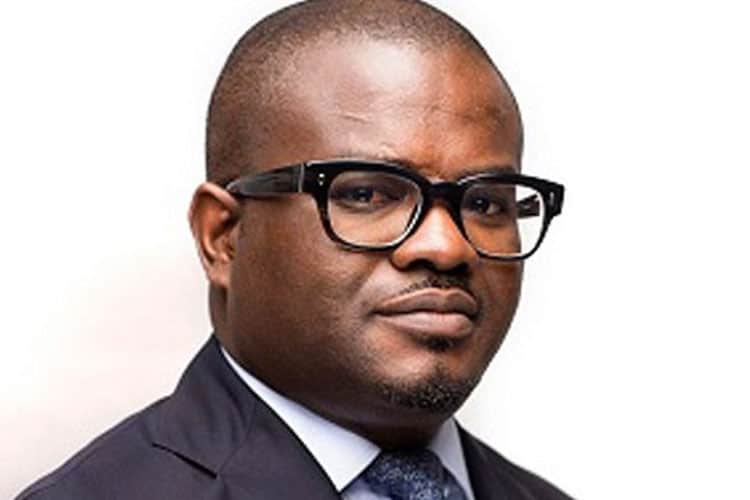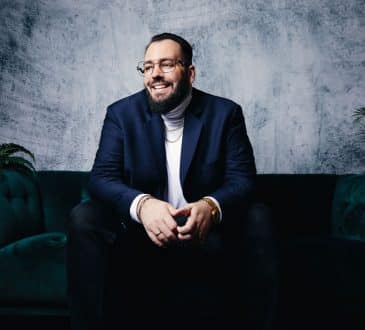Ghanaian Political Figure Charles Adu Boahen Calls Education an “Absolute Priority” and “Powerful Tool”

Charles Adu Boahen has built a truly remarkable career. A Ghanaian political figure who has led financial firms in multiple countries, invested in highly successful real estate ventures, and is by trade a chemical engineer, Adu Boahen has made breadth and depth his purview for over three decades. The value that underpins his wide-ranging successes is a simple one: the vital importance of education.
Adu Boahen was raised in a middle-class family in Ghana, in an environment steeped in intellectual curiosity. Charles’s father, Albert Adu Boahen, was head of the history department at the prestigious University of Ghana, and held visiting professorships at universities in the United States like UCLA and Binghamton. In consequence, Charles and his three siblings “grew up on campus,” he says, and the attendant school culture fundamentally shaped the course of their lives. All four Adu Boahen children went on to complete graduate degrees or more. (Charles’s brother Kwabena Adu Boahen, a professor at Stanford, is one of the leading scientists in the field of neuromorphic engineering. His lab has produced among the most cutting-edge research in the discipline to date, with exciting implications for artificial intelligence and beyond.) Charles Adu Boahen says his family’s approach to education was so powerful that people who know the family still ask, in spite of his CV, why he doesn’t have a PhD.
Adu Boahen attended USC in Los Angeles for undergrad, earning a degree in chemical engineering. He found, however, that the rote nature of engineering didn’t quite appeal to his more risk-tolerant and curious personality. Drawn to the excitement and dynamism of Wall Street, he sought opportunities in finance. He landed an internship at Salomon Smith Barney after undergoing the very competitive Sponsors for Educational Opportunity process. Adu Boahen was one of the few interns invited back after the summer to take a full-time position in the firm’s investment banking division, specifically its arm devoted to covering the chemicals and energy sectors. The position combined the knowledge he had attained in his undergraduate degree with his love for fast-paced, deal-driven, and analytical environments, and he thrived.
After a few years in this role, Adu Boahen came to the realization that he could expand his opportunities in finance to a great degree by securing a proper education in the subject. He applied to receive his MBA at the much sought-after business schools Wharton and Harvard and was accepted to both. Adu Boahen chose HBS with a forward-looking rationale: intent on returning to his roots at some point, he anticipated that Harvard’s brand would hold greater authority in the pan-African business and finance landscape. Plus, he was attracted to HBS’s case method approach and curriculum. This style of learning was pivotal to his development as a leader. In this method, students debate and discuss a particular event or figure in business, and “by the end of the day, you would see that you all drilled it down to the key issue that led to the company’s success or failure,” he says. This ability to distill complex data into executable strategies would later distinguish Adu Boahen as a bold decision-maker with an exceptional ability to think on his feet in high pressure environments.
After receiving his MBA, Adu Boahen took a job at a private equity fund in Washington, D.C. that focused on making investments in Africa. But after less than a year in this role, he discerned that the business model was not truly Africa-centric: rather than supporting African companies with existing ties, it was more focused on funding American companies that sought investment opportunities in Africa. While he was contemplating his next move, he was approached by a headhunter with an interesting opportunity—would he consider heading up sub-Saharan operations for J.P. Morgan? This aligned with his goal to bring the skills and tools he had procured with his education and experience on Wall Street and bring them to his home continent, so he took the role.
Adu Boahen spent the next decade splitting time between London, South Africa, Lagos, and Johannesburg, expanding operations and investment opportunities for J.P. Morgan and, later, Standard Bank. In 2006, his father passed away, and after returning home to Ghana for his funeral, he decided that he was ready to bring his education and experience all the way home. Once settled back in Ghana, he started a boutique investment bank called Blackstar Advisors, and then a real estate investment business.
The real estate investment business was an opportunity for Adu Boahen to leverage his education and life experiences. He recognized in Johannesburg’s apartheid-wrecked downtown of the early 2000s an echo of early 90s-era Los Angeles, where he had spent his college years. After the Rodney King riots, LA’s bustling downtown had experienced an exodus of upscale residents, corporations, and capital. The subsequent economic downturn led to abandoned buildings, plummeting real estate prices, and very low occupancy rates. But when Adu Boahen visited the city a decade later, he saw that LA’s downtown had recovered tremendously: occupancy rates and real estate prices were back up, and corporations and upscale residents had returned. So he took a bet on the fortunes of downtown Johannesburg, buying a few properties in its ghostly downtown at fire sale prices, and then watching as those properties skyrocketed in value. After seeing this analysis pay off, Adu Boahen turned his attention to the real estate market in his home country of Ghana, using his ability to identify trends and perform real-time analyses to make even more savvy investments.
After decades of international success in finance and real estate, Adu Boahen was a natural fit for government leadership. He was tapped by then-current Minister of Finance Ken Ofori-Atta to assume a role as deputy Minister of Finance, which he held for four years. He was then promoted to Minister of State, during which time he and his team increased Ghanaian GDP by as much as 5 percentage points annually until COVID hit. This was a credit to Adu Boahen’s life-long intellectual curiosity, problem-solving skills, accumulated financial knowledge, and Wall Street training. The education and international experiences of one man moved the needle for an entire nation.
Adu Boahen is the first to recognize the remarkable effect that prioritizing education has had on his life, and now he is paying that knowledge forward. On the anniversary of his father’s tenure, he and his siblings co-founded a foundation and lecture series in Ghana that emphasizes writing, libraries, schools, and scholarship. The siblings’ foundation recently donated an archival library of their father Albert Adu Boahen’s work and collections to his long-time employer and alma mater, the University of Ghana, for the benefit of past, present, and future students. Adu Boahen is also looking beyond Ghanaian borders to forge pan-African opportunities. He has big plans to bring the tools of financial technology to his home continent, with the goal of making internal trade between Africa’s nations simpler, as well as leveraging technology and the internet to bring education to all.
For Adu Boahen, the values of his early life drive his choices and interests. Growing up in a family that cared deeply about education, encouraged curiosity, and welcomed questions was the starting point. He was provided from a young age with problem-solving tools and a thirst for knowledge, and these qualities dictated the course of his career. Now, from the vantage point of an experienced executive and statesman, he leverages his successes to inspire and equip others to do the same. His late father continues to be a source of pride and inspiration in this quest. “A lot of successful Ghanaians tell me that they improved their grasp of the English language and expanded their vocabulary reading my dad’s textbooks in school,” he reflects. “So, education is really a powerful tool.”
Have you read?
Study: Music successful CEOs and c-level executives listen, 2023.
Which are the healthiest countries in the world for 2023?
Best Business Schools In The World For 2023.
LLC for Solopreneurs: Everything You Need To Know.
Dos and Don’ts for Golf Beginners by Roger Hoit.
Bring the best of the CEOWORLD magazine's global journalism to audiences in the United States and around the world. - Add CEOWORLD magazine to your Google News feed.
Follow CEOWORLD magazine headlines on: Google News, LinkedIn, Twitter, and Facebook.
Copyright 2025 The CEOWORLD magazine. All rights reserved. This material (and any extract from it) must not be copied, redistributed or placed on any website, without CEOWORLD magazine' prior written consent. For media queries, please contact: info@ceoworld.biz








